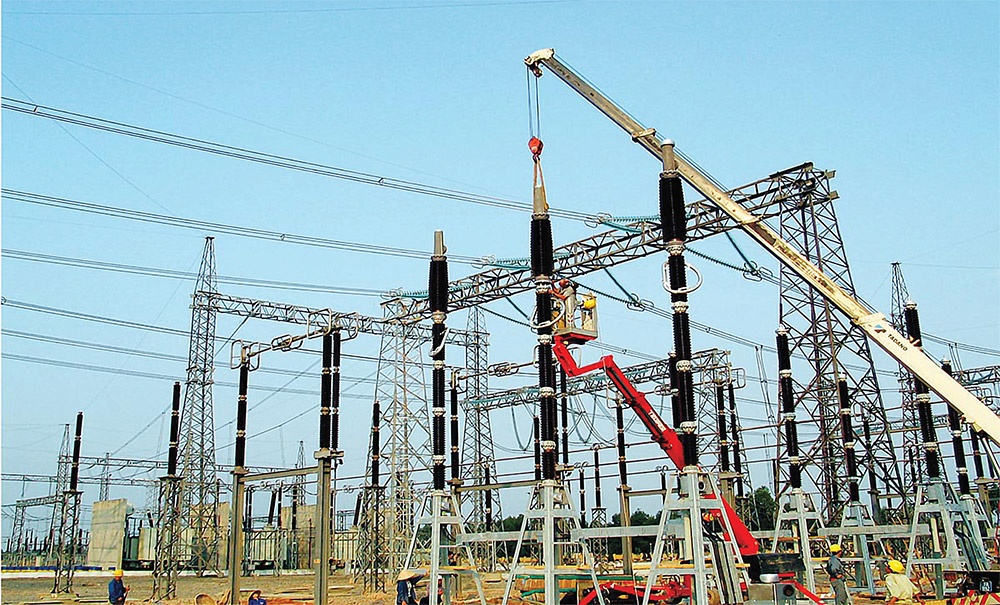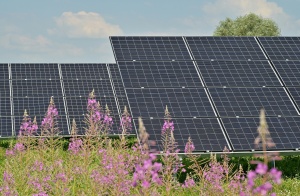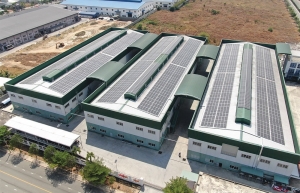DPPA decree may require supplements
In the first days of May, the Ministry of Industrial and Trade (MoIT) completed a draft decree on direct power purchase agreements (DPPAs) between renewable energy generators and customers via private transmission lines and the national grid.
Regarding DPPAs through private lines, the MoIT offers two options: maintaining the current policy (generators with electricity retail licences only can sell), and building regulations allowing renewable energy generators to sell electricity directly to large electricity buyers via private lines.
The MoIT also proposed two options for DPPAs through the national grid: All renewable energy generators including solar, wind, small hydro powers, biomass, tidal, geothermal powers are allowed to participate in DPPAs through the national grid with large electricity customers for production, services, and commerce.
 |
| DPPA decree may require supplements |
In another option, renewable energy generators, including solar and wind powers, can conduct DPPAs through the national grid with large electricity users for connection production from 22kV or higher and an average monthly consumption of 500,000kWh or according to the registered output (for new buyers).
Tran Viet Hoa, director general of the MoIT’s Electricity Regulatory Authority, said that the draft decree aimed to help businesses to flexibly and proactively negotiate competitive prices, and meet their specific needs. The ministry will build a clear legal and regulatory framework, ensuring openness, transparency, and protecting the interests of participating parties.
“DPPAs will encourage the development of renewable energy and be a driving force for businesses to participate in the market, building a fair and transparent business environment,” Hoa said. “However, the mechanism through the national power grid will raise difficulties. Specifically, to operate the power system safely and stably, with higher-capacity transmit power, infrastructure should be upgraded or expanded.”
Many renewable electricity investors would like to expand buyers, as many customers want to buy clean energy for enough green credits.
Nguyen Quoc Viet, general director of Vinasol JSC providing energy-related solutions, said the mechanism was for large renewable power farms, not for residential solar power, small rooftops, or factory roofs.
“Regulations that buyers must have an average monthly consumption of 500,000kWh are difficult for most small- and medium-sized enterprises to participate in, as they often consume only 200,000kWh each month,” Viet said. “For businesses that use less than 500,000kWh, what mechanism will we follow? The mechanism should loosen the conditions for buyers.”
Specifically, in the case of DPPA via private lines, the draft only allows large electricity users to participate, while other ones have to wait for the next phase.
“Because they use private lines, the impact on the national electricity system is insignificant, so the decree should not limit buyers in large customers,” said a representative of the Vietnam Chamber of Commerce and Industry.
“In the case of concerns about negative impacts when excess renewable electricity capacity is generated on the system, the draft decree should supplement regulations that both parties must install a device to prevent backflow to the power grid.”
Tran Dinh Long, vice chairman of the Vietnam Electrical Engineering Association, said that the decree was a step forward in the process of building an electricity trading market, and could be considered a pilot that has not yet resolved issues in the industry, especially in renewable energy.
“Priority for electricity consumption still requires safe grid connection. However, very few investors can spend a lot of money to build their own lines for selling,” Long said.
The option of buying directly through the national grid with electricity safety commitments will be more popular. However, the DPPA mechanism needs to be built for a longer period and be easier to apply.
“To build a competitive electricity market, Vietnam should extend buyers without distinguishing large or small ones. The role of the state management authorities is to invest in expanding the power grid for transmission, leasing the grid for the market to buy and sell with each other,” Long added.
Previously, numerous big corporations like Samsung, Apple, Heineken, Meta, and Nike sent letters to the prime minister to express their support for the DPPA mechanism between renewable energy generators and large customers. The average monthly electricity consumption of these buyers exceeds one million kWh.
An MoIT survey on the need to participate in DPPAs showed that demand is considerable. Both renewable electricity developers and large customers (using one million kWh per month or more) want to implement DPPAs to achieve green development goals.
Specifically, about 24 wind and solar power schemes with a total installed capacity of over 1,770MW want like to participate in the mechanism, and 17 projects with nearly 2,850MW are considering participation conditions and the ability to find and sign contracts with customers.
For buyers, mainly for production purposes from 22kV or higher, there are currently 20 customers with a total demand of almost 1,000MW.
 | Commerce chamber advocates power purchasing agreement, bypassing state utility EVN The Vietnam Chamber of Commerce and Industry (VCCI) has recommended allowing all businesses and individuals to purchase renewable energy directly, rather than through state utility Vietnam Electricity (EVN). |
 | Rooftop solar proposal deemed precautionary step A proposal to prevent self-producing and self-consuming rooftop solar power from being connected to the national electricity grid could discourage investors. |
What the stars mean:
★ Poor ★ ★ Promising ★★★ Good ★★★★ Very good ★★★★★ Exceptional
Related Contents
Latest News
More News
- Trung Nam-Sideros River consortium wins bid for LNG venture (January 30, 2026 | 11:16)
- Vietnam moves towards market-based fuel management with E10 rollout (January 30, 2026 | 11:10)
- Envision Energy, REE Group partner on 128MW wind projects (January 30, 2026 | 10:58)
- Vingroup consults on carbon credits for electric vehicle charging network (January 28, 2026 | 11:04)
- Bac Ai Pumped Storage Hydropower Plant to enter peak construction phase (January 27, 2026 | 08:00)
- ASEAN could scale up sustainable aviation fuel by 2050 (January 24, 2026 | 10:19)
- 64,000 hectares of sea allocated for offshore wind surveys (January 22, 2026 | 20:23)
- EVN secures financing for Quang Trach II LNG power plant (January 17, 2026 | 15:55)
- PC1 teams up with DENZAI on regional wind projects (January 16, 2026 | 21:18)
- Innovation and ESG practices drive green transition in the digital era (January 16, 2026 | 16:51)

 Tag:
Tag:




















 Mobile Version
Mobile Version